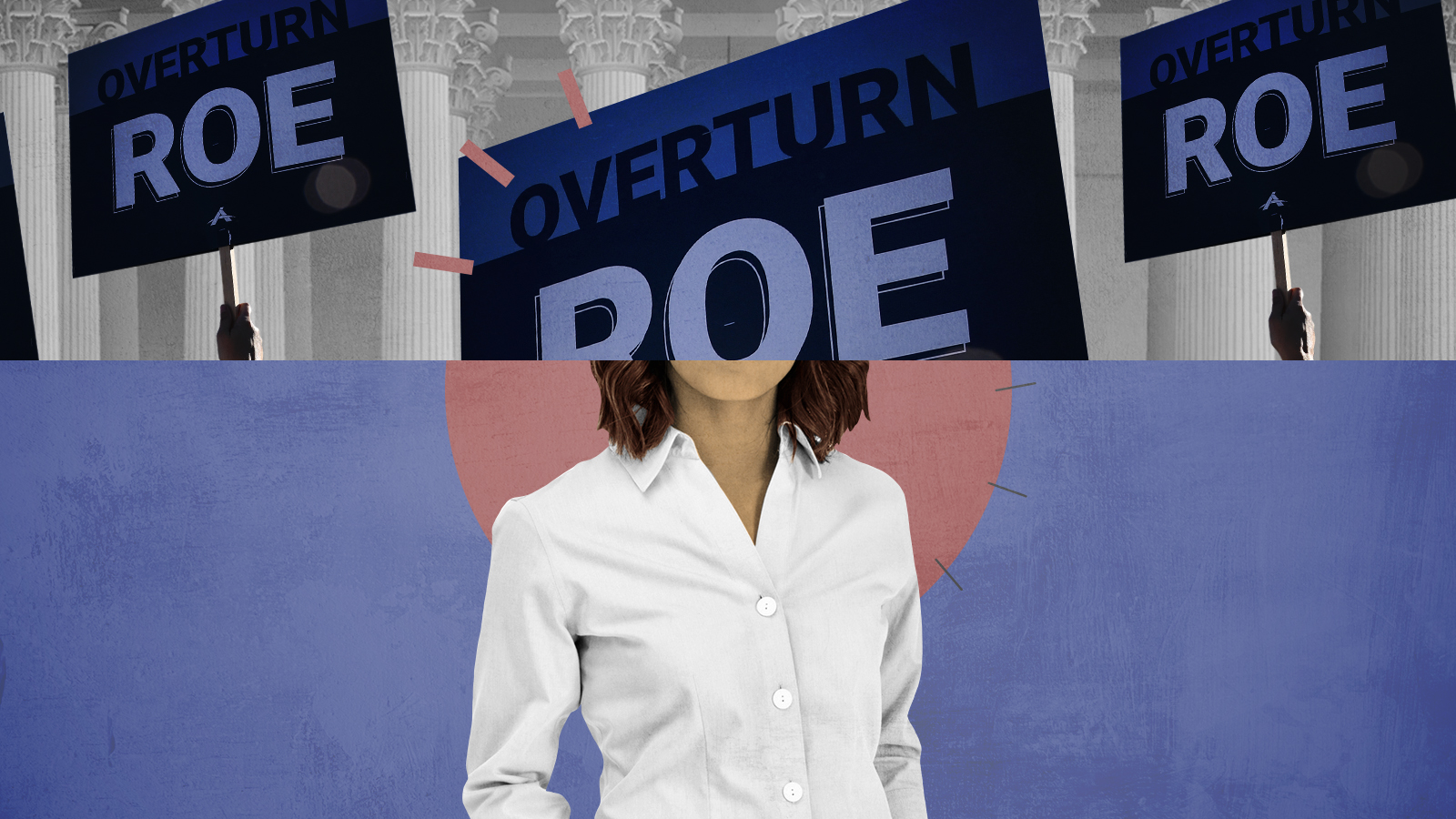The disingenuous core of Mississippi's 'women can have it all' argument


A free daily email with the biggest news stories of the day – and the best features from TheWeek.com
You are now subscribed
Your newsletter sign-up was successful
Today is a historic day. The Supreme Court is hearing arguments in a Mississippi case that will probably decide the future of abortion rights in the United States. Among the issues the justices will contemplate is a chicken-or-egg question: Does access to abortion increase women's opportunities, or do women's expanded opportunities make abortion unnecessary?
The attorney general of Mississippi, Lynn Fitch, would have you believe the latter. Since Roe v. Wade was decided in 1973, she wrote in a Sunday op-ed for the Washington Post, "it has become easier for women to reach the very pinnacle of our success, economically and socially, fully independent of the right" to abortion.
"Law and public policy, culture and society have all advanced to give women more opportunities to pursue success in our professional lives and also have a family," Fitch added. "Maternity leave and even paternity leave are commonplace. … Men and women are sharing responsibilities in the home better than ever before."
The Week
Escape your echo chamber. Get the facts behind the news, plus analysis from multiple perspectives.

Sign up for The Week's Free Newsletters
From our morning news briefing to a weekly Good News Newsletter, get the best of The Week delivered directly to your inbox.
From our morning news briefing to a weekly Good News Newsletter, get the best of The Week delivered directly to your inbox.
Fitch might be overstating the extent of women's advancement somewhat — the United States is one of just six countries without a national paid leave policy, and women still bear the brunt of household duties. Still, most people would agree that things are generally better for American women than they were 50 years ago.
But those advances are probably the result of Roe, at least in part. "Studies show that in addition to impacting births, abortion legalization has had a significant impact on women's wages and educational attainment, with impacts most strongly felt by Black women," a group of economists wrote in a friend-of-the-court brief in the Mississippi case. Research shows that "abortion legalization had large effects on women's education, labor force participation, occupations, and earnings."
In other words, Mississippi is using the benefits provided by reproductive rights to justify taking those rights away.
Most pro-lifers sincerely believe that abortion is deeply immoral. That's the reason the Mississippi law exists, and why Americans have been fighting about abortion for the last few decades. If you truly think that abortion is a form of murder, everything else is secondary. Would Mississippi be trying to overturn Roe even if women had made no advances in the last half-century? Almost certainly. Even granting that her celebration of women's liberation is sincere, Fitch's argument is disingenuous because it's irrelevant to the real reason the Supreme Court is hearing arguments today.
A free daily email with the biggest news stories of the day – and the best features from TheWeek.com
Many Americans find themselves in a moral gray zone with regard to abortion: Just under half of us say it is "morally acceptable" but a much larger percentage still wants to preserve Roe. Mississippi's "women can have it all" argument may make such folks feel less queasy about its restrictive new law, but it's just a faux-feminist fig leaf.
Joel Mathis is a writer with 30 years of newspaper and online journalism experience. His work also regularly appears in National Geographic and The Kansas City Star. His awards include best online commentary at the Online News Association and (twice) at the City and Regional Magazine Association.
-
 The 8 best TV shows of the 1960s
The 8 best TV shows of the 1960sThe standout shows of this decade take viewers from outer space to the Wild West
-
 Microdramas are booming
Microdramas are boomingUnder the radar Scroll to watch a whole movie
-
 The Olympic timekeepers keeping the Games on track
The Olympic timekeepers keeping the Games on trackUnder the Radar Swiss watchmaking giant Omega has been at the finish line of every Olympic Games for nearly 100 years
-
 Epstein files topple law CEO, roil UK government
Epstein files topple law CEO, roil UK governmentSpeed Read Peter Mandelson, Britain’s former ambassador to the US, is caught up in the scandal
-
 Iran and US prepare to meet after skirmishes
Iran and US prepare to meet after skirmishesSpeed Read The incident comes amid heightened tensions in the Middle East
-
 Israel retrieves final hostage’s body from Gaza
Israel retrieves final hostage’s body from GazaSpeed Read The 24-year-old police officer was killed during the initial Hamas attack
-
 China’s Xi targets top general in growing purge
China’s Xi targets top general in growing purgeSpeed Read Zhang Youxia is being investigated over ‘grave violations’ of the law
-
 Panama and Canada are negotiating over a crucial copper mine
Panama and Canada are negotiating over a crucial copper mineIn the Spotlight Panama is set to make a final decision on the mine this summer
-
 Why Greenland’s natural resources are nearly impossible to mine
Why Greenland’s natural resources are nearly impossible to mineThe Explainer The country’s natural landscape makes the task extremely difficult
-
 Iran cuts internet as protests escalate
Iran cuts internet as protests escalateSpeed Reada Government buildings across the country have been set on fire
-
 US nabs ‘shadow’ tanker claimed by Russia
US nabs ‘shadow’ tanker claimed by RussiaSpeed Read The ship was one of two vessels seized by the US military
